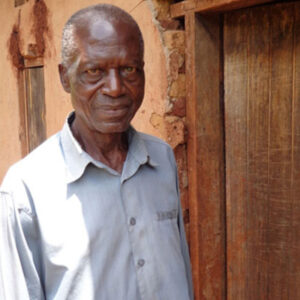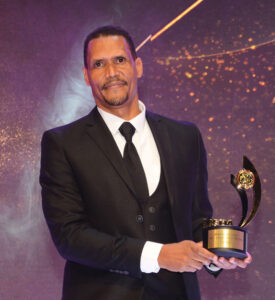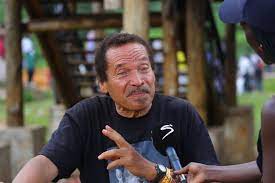Tales of Retirement from national sports legends.
From rags to riches and back to rags again. The theatre of Ugandan sport abounds with tragic tales of icons who rose from obscurity to staggering success, before losing it all and plunging back into hardship.
Enter COVID-19 and the screeching halt to the local sports industry. In the resulting economic carnage, devastated clubs and active athletes had nowhere to turn but the media. Obadiah Ssemakula and Issa Sseketawa attracted widespread coverage and sympathy as the gaze inevitably fell on Uganda Cranes ‘ex internationals’.

But, not unlike Francis Kulabigwo, who was once Uganda Cranes anchorman in 1972, 1974 and 1976. Kulabigwo is regarded as one of Uganda’s greatest attacking midfielders, but the 70 year-old has nothing to show for leading Uganda to four AFCON tournaments and multiple CECAFA Cup titles. After such an illustrious sports career, life in retirement is nothing less than abject.
“I have gained nothing from my sweat,” laments Kulabigwo, who has worked as a barber, swimming pool cleaner at Kiwatule Recreation Center and (now) a street sweeper.
Ray of hope
Kulabigwo’s tragedy highlights the need for drastic measures to protect the Ugandan sportsman, measures like the government directive announced by FUFA President, Moses Magogo in a meeting with club captains and representatives from the Uganda Premier League (UPL) and Big League in August 2020.
“The Government has officially written to us regarding NSSF and taxation for the players’ earnings,” Magogo said. “It’s a new thing and definitely tough considering the status of our leagues, but we must embrace it and see how both the clubs and players will be able to fulfill it.
As law-abiding citizens, definitely we must pay taxes, but it is also important for players to save with NSSF. As we seek to go professional, these are realities that we must face,” Magogo said.
Fair to say the news was delivered, and especially received with the welcome of a downpour at a picnic. This new requirement could be the beginning of the end for the sad narrative of Ugandan-sports-great-in-retirement-blues. Or at least reduce its reproduction in an industry disposed to luxurious lifestyles despite the relative shortness of its success.
“When young Ugandan footballers sign big deals with foreign clubs, they often start living lavishly, many times running away from their clubs to come back home to party, yet great footballers enjoy their money after retirement as there’s little time and room to do so during their active days,” observed legendary Cranes goalie Sadiq Wassa, who knows all about the doldrums of a ravaged retirement.
Wassa’s heir and Cranes superstar goalkeeper Denis Onyango advises Ugandan sportsmen, and especially his football peers, to pay their dues, notwithstanding the difficulties of professional sports.
“It’s not easy playing professional football if you are not mentally strong and willing to dig deep and go an extra mile,” says Onyango.
Proline founder and CAF coaches’ instructor Mujib Kasule believes, “Ugandan players have a perception that playing professional football, as we call it, is the beginning of a good life, forgetting that playing at a higher level demands a lot of sacrifices.”
One of those sacrifices is tucking away a portion of today’s income for retirement. Ugandan athletes and their employers are largely indifferent to this need though, prizing present goals on and off the field above all else. Needless to add, if players are reluctant to save 5% of their income with the NSSF, their employers are even more indifferent to contributing the complementary 10% top-up.
‘Give us more time’
As Proline boss Kasule argued, the average Ugandan football club operates a lean budget, which is likely to affect their compliance to the NSSF regulation.
“Much as it is a good idea for clubs to pay their players’ NSSF, it’s going to be a burden to private clubs who don’t have those big budgets,” Kasule said. “Football is not profitable in Uganda and several clubs can’t even guarantee players’ monthly salaries. Often players go several months without pay. Therefore, URA and the government need to do more research about the industry, and treat each club differently. Some institutions are able to pay the players’ NSSF, and those should be encouraged to do it. But those that cannot should be given more times as they get into a bigger money bracket.”
The average footballer in the Uganda top flight earns a monthly salary of around Shs300, 000. This is generally complemented with transport and lunch allowances, but this scarcely alters the grim picture.
So dire is the situation that even URA FC’s Media Officer, Patrick Ochieng called for “player welfare to be improved first because at the moment many players earn very little”.
Wakiso Giants CEO acknowledged that while paying NSSF “will eventually help players, it will add an extra load on the club”.
For reigning Premier League champions Vipers spokesman Abdul Wasike, the priority should “be on empowering clubs to be able to fulfill all their contractual obligations to players.”
Still, the chairman Uganda Football Players Association Lawrence Kizito warns, “we speak to players whose careers are still alive and make it known to them that life at 40 is different. We encourage them to save, to lead a responsible, reasonable life because there is a huge load that awaits them after retirement.”

The ones who made it
It’s a load that national sports icons like William Nkemba, Edgar Watson, Godfrey Nyakana, John Nagenda, Arthur Blick Sr., and many others were cushioned by transitioning into other careers after sport.
Nkemba secured legendary status for SC Villa during his eight-year spell with the Jogoos, and was on the verge of a professional contract when a medical uncovered a chronic knee problem.
He was forced into retirement but that did not reduce his usefulness. He soon went into the club’s management and led it to 1994 league title. Nkemba is back as the club’s chairman, albeit on an interim basis for the last two years. Oh yes, his day job is Manager Projects Implementation for Uganda Electricity Transmission Company Limited.
Current FUFA CEO Edgar Watson is also a shining example of a great Ugandan footballer who made good his transition to life after football. Watson was a mercurial midfielder who captained Villa and the Cranes at his peak, and generally carried himself with all the class and discipline of a wise head.
That he has ascended to the pinnacle of the administrative ladder of the game is anything but surprising.
Rising out of the dust

Arthur Blick Sr. has a story like none in its depth of pain and triumph over adversity. The legendary rider was at the top of Ugandan motorcycling when, on July 10 1982, he suffered career-ending spine damage in a racing accident at Kakindu Stadium, Jinja. Blick would not walk again. Thirty-eight years later, Blick is a successful farmer, a local council leader, and a motocross icon with no rage towards the sport that has confined him to a wheelchair for four decades.
Blick Sr. perfectly illustrates the thrills and heartaches of sport, its uncertainties and cruelties, but critically, he pays homage to something bigger, a valuable life lesson to every Ugandan athlete. That it’s possible to rise above the worst setbacks, even one as daunting as an injury-induced early retirement.



